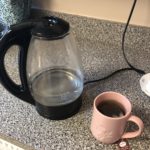In college, there tends to be a lot of required (or strongly recommended) reading. Whether there are regular reading quizzes, book reviews due, or information for finals, there is always something to read, and being able to do it as efficiently and effectively as possible is important. With that, here are my tips for reading through college-assigned books:
How to Plan for Reading:
Have a plan.
If you have a specific goal and a specific plan to go with it, your process will be far easier than trying to panic-read at the last minute. For example, if you have to read a 10 chapter book and write a 5 page response, and you have 6 weeks, until it’s due, you can break it up this way:
-Week 1. Read first 3 chapters, and make notes.
-Week 2. Read 3 more chapters, and make notes.
-Week 3. Finish book, and make notes on the last few chapters.
-Week 4. Compile your most important thoughts together.
-Week 5. Write your first draft, and get feedback from writing center and/or professor.
-Week 6. Edit and submit.
Compare the above plan to the no-plan version:
-Week 1. Read first chapter.
-Week 2. Do nothing.
-Week 3. Do nothing.
-Week 4. Do nothing.
-Week 5. Realize that the project is due. Do nothing.
-Week 6. Total panic and last minute cramming.
Set a timer.
One of the quickest ways to ruin your reading time is getting distracted. Decide how much time you need to spend on reading, and set a timer for that long. Keep reading until you’re finished, or your timer goes off. During this time, have your phone/social stuff turned off or silenced, and don’t let yourself do anything else. Your focus will be so much stronger, and you’ll find that you get through reading much faster.
Pick some background noise.
If I am in a seperate room from everyone, and just need to filter out weird sounds (say, the dishwasher, distant conversations, tea boiling), I like brown noise or rain sounds. If I’m in the room with other people, I like to do calming music with words to cover the sounds of conversations (typically something by Ella Fitzgerald). You might be different. This is a good time for experimenting. Try some soundtrack music one day, and white noise or something similar the next day. What works best for you? Don’t choose music that you want to start belting whenever you hear it; remember: the point is to be less distracted.
How to Read for Learning:
Read with the end in mind.
This will help with the first tip. If you’re writing a review, think about the main points, and whether or not you agree with them. If you’re writing for a test, think about what might me on said test. Also, pay extra attention to sections that relate to parts of lectures. If your professor talks about a specific composer, and your textbook has a section on that same composer, it may be worth a second read-through.
Take notes as you read.
I will use a pencil and underline important quotes, write in questions or one-sentence thoughts, and other pertinent thoughts (thanks to Amy Crider for getting me started on this one!). Then, when I’m looking back at the book later, I can easily find what I want to talk about.
Underline or circle information or points that line up with your goal (see tip one of this section). With books that have exams coming up, for example, underline or circle important names, dates, and ideas, so that you can find it for studying later. This method saves much pain in the future, even if it seems weird at first.
There you have it. Those are my top tips for reading effectively for college. What are your favorite ways to read more effectively? I would love to hear about them in the comments section!







